Dishing With Bailey
Egg Dishes Kids Love
Instead of feeding your kids cereal or bars, nutritionist Alainn Bailey will show you the right way to super-charge your mini's morning.
- Photography
- Peden+Munk
- Written By
- Alainn Bailey
Breakfast is a foundational meal that sets up our kids for growing, learning and playing. As busy parents we all too often reach for breakfast cereal or bars, but what if there was something easy and superior in nutrients? I’m talking about an easy-to-prepare, sugar-free, non-processed and totally natural option that maximizes health, growth and brain development.
Let me reintroduce you to the mighty egg. Eggs are rich in protein and many nutrients that play a pivotal role in muscle development, brain development and concentration. This last bit is an area where eggs trump cereal because they bind other foods in the stomach, slow down digestion and moderate the response of the hormone insulin. The benefits of regulated blood sugar are many, including balanced mood and concentration, as well as lowering the risks of hunger pangs, obesity, fatty liver and diabetes.
In contrast, breakfast cereals, often super-rich in sucrose, are processed at high temperatures and dissolve rapidly to simple sugars. This spikes the blood sugar, promotes a massive insulin response and has your child screaming for her next fix by morning break. If you’re saying to yourself, “My little one isn’t an egg eater,” worry not.
Let me reintroduce you to the mighty egg. Eggs are rich in protein and many nutrients that play a pivotal role in muscle development, brain development and concentration. This last bit is an area where eggs trump cereal because they bind other foods in the stomach, slow down digestion and moderate the response of the hormone insulin. The benefits of regulated blood sugar are many, including balanced mood and concentration, as well as lowering the risks of hunger pangs, obesity, fatty liver and diabetes.
In contrast, breakfast cereals, often super-rich in sucrose, are processed at high temperatures and dissolve rapidly to simple sugars. This spikes the blood sugar, promotes a massive insulin response and has your child screaming for her next fix by morning break. If you’re saying to yourself, “My little one isn’t an egg eater,” worry not.
Egg-cellent Extras
Eggs are rich in a number of nutrients that are hot right now the way cool-kid kale propelled Vitamin K1 into vogue a few years back.
Vitamin K2 acts together with Vitamins A and D to put calcium in all the places it should be (the bones) and pulling from all the places it shouldn’t (accumulating in the arteries or kidneys).
Vitamin K2 acts together with Vitamins A and D to put calcium in all the places it should be (the bones) and pulling from all the places it shouldn’t (accumulating in the arteries or kidneys).
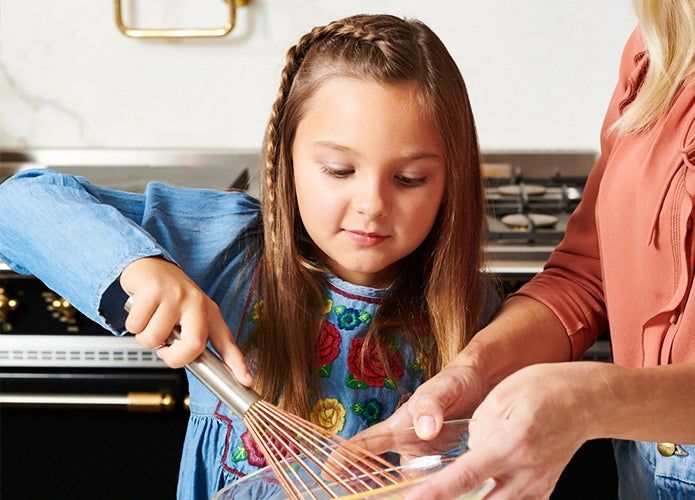
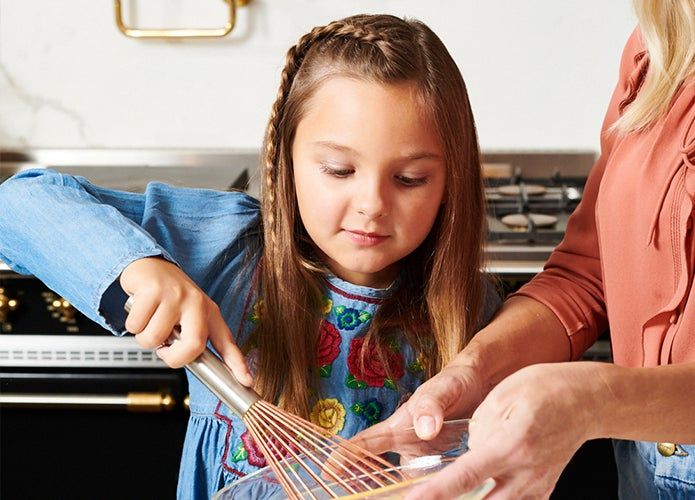
Here are some kid-friendly recipes: pão de queijo, a Brazilian cheese bread that doubles as a popular cocktail party hors d’oeuvres in my house, egg and broccoli muffins and the perfect scrambled eggs.
For a well-balanced breakfast, I’d recommend serving these with ½ cup of yogurt and some blueberries or raspberries.
For a well-balanced breakfast, I’d recommend serving these with ½ cup of yogurt and some blueberries or raspberries.
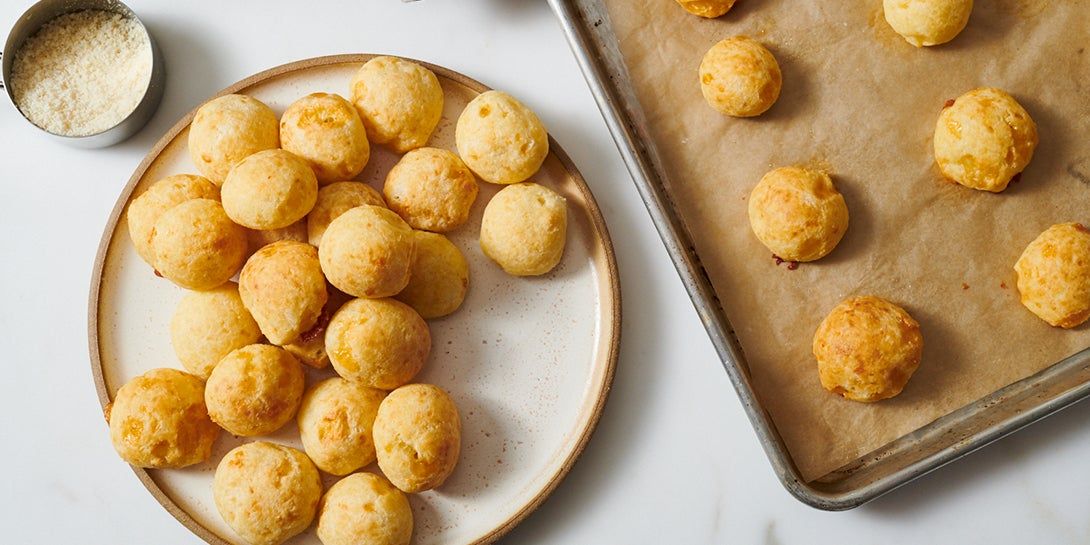
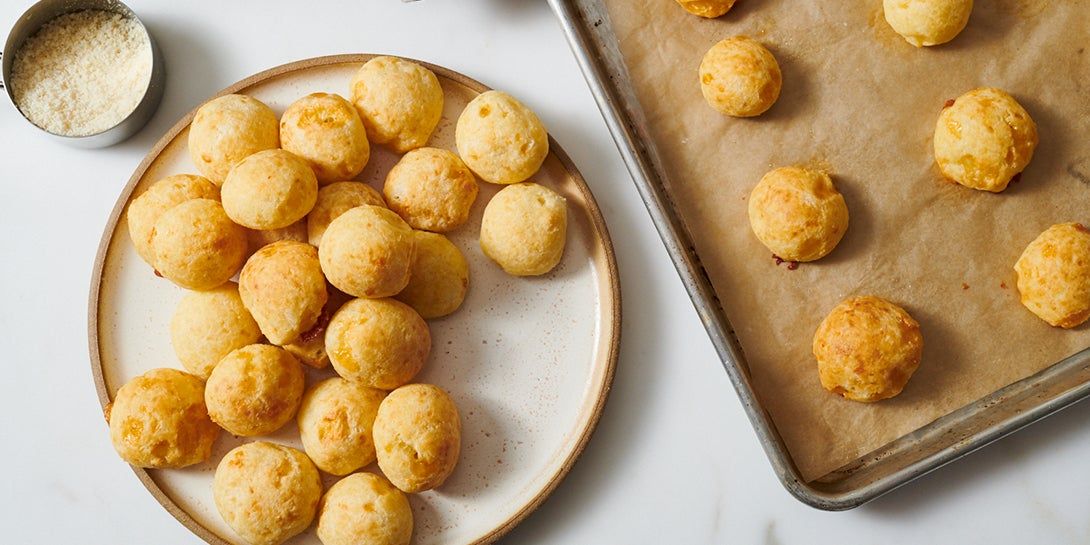
Pão de Queijo (Brazillian Cheese Bread)
Yield: 60
Portion Size: 3 breads = 20g carb, 5g pro, 180 kcal
Ingredients
4 cups yucca flour (tapioca)
1 tbsp salt
1 cup whole milk
1 cup water
½ cup olive oil
6 eggs, beaten
1 ½ cups cheese (use at least ½ cup hard cheese such as parmesan)
1. Heat oven to 350F.
2. In a large baking bowl, combine flour and salt.
3. In a pan, heat water milk and oil together until they reach a boil
4. Add fluids to the flour, and mix evenly with a spoon. Set aside to cool.
5. Add the beaten eggs in three batches and knead for 5 to 10 minutes until dough stiffens. You can also combine the ingredients in a food mixer with the whisk setting for 5 minutes.
6. Add cheese and mix for an additional 2 minutes.
7. Roll into small balls about the size of a rounded dessert spoon. You may need to add a little oil spray to your hands so the dough does not stick.
8. Place on parchment-covered baking tray and bake for 30 to 35 minutes. Balls should puff up by 3 times and be flecked with golden cheese.
Note: If you'd like to make fewer than 60 servings, the dough holds up well in the freezer. To freeze, place the dough balls on a cookie sheet, and when frozen, put them a Ziploc bag. When reheating, place them on a cookie tray, heat the oven to 375 and bake for 20 to 25 minutes.
Yield: 60
Portion Size: 3 breads = 20g carb, 5g pro, 180 kcal
Ingredients
4 cups yucca flour (tapioca)
1 tbsp salt
1 cup whole milk
1 cup water
½ cup olive oil
6 eggs, beaten
1 ½ cups cheese (use at least ½ cup hard cheese such as parmesan)
1. Heat oven to 350F.
2. In a large baking bowl, combine flour and salt.
3. In a pan, heat water milk and oil together until they reach a boil
4. Add fluids to the flour, and mix evenly with a spoon. Set aside to cool.
5. Add the beaten eggs in three batches and knead for 5 to 10 minutes until dough stiffens. You can also combine the ingredients in a food mixer with the whisk setting for 5 minutes.
6. Add cheese and mix for an additional 2 minutes.
7. Roll into small balls about the size of a rounded dessert spoon. You may need to add a little oil spray to your hands so the dough does not stick.
8. Place on parchment-covered baking tray and bake for 30 to 35 minutes. Balls should puff up by 3 times and be flecked with golden cheese.
Note: If you'd like to make fewer than 60 servings, the dough holds up well in the freezer. To freeze, place the dough balls on a cookie sheet, and when frozen, put them a Ziploc bag. When reheating, place them on a cookie tray, heat the oven to 375 and bake for 20 to 25 minutes.
Egg-cellent Extras
Vitamin B12 is predominantly found in animal foods, so if you are raising your child as a vegetarian, you should consider an exception for eggs. B12, with cobalt at its center, is a weird and wonderful molecule – essential for mental development and performance, mood and heart health.
Biotin is essential for brain development, healthy skin and hair.
Choline is a key nutrient in protecting from fatty liver as it helps export triglycerides from the liver to the body. Choline is also one of the most important components for building and developing a healthy brain.
Biotin is essential for brain development, healthy skin and hair.
Choline is a key nutrient in protecting from fatty liver as it helps export triglycerides from the liver to the body. Choline is also one of the most important components for building and developing a healthy brain.
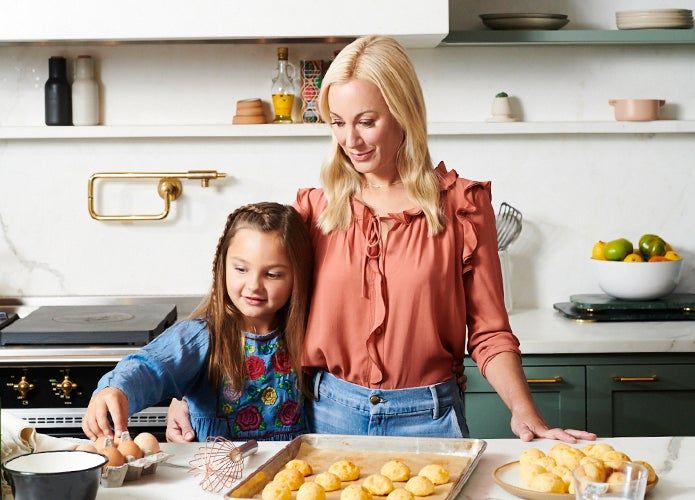
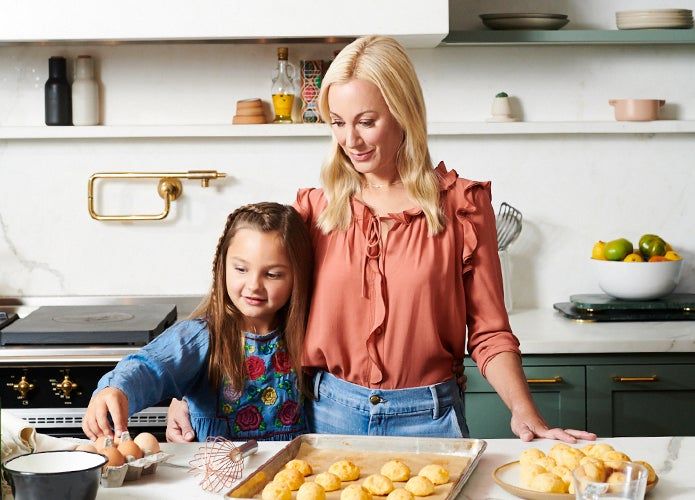
Egg and Broccoli Muffins
Yield: 8 to 10
Portion Size: 2g carb, 14g pro, 170kcal
Ingredients
6 pasture-raised eggs
1 cup chopped steamed broccoli (best if water is roughly squeezed away when cooled)
1/3 cup chopped chives
½ cup shredded cheese of choice (parmesan, cheddar, gruyere or a combo)
Salt and pepper to taste
Olive oil spray
1. Preheat oven to 325F and lightly spray a small muffin tray. You can also cut parchment circles to line the bottom if you have time.
2. Mix broccoli, cheese and chives in a large bowl.
3. Beat eggs in another bowl.
4. Divide the broccoli mixture evenly in the muffin tray.
5. Spoon in 1/3 cup of the egg mixture into each to cover and lightly shake the tray to mix.
6. Bake for 15 minutes.
This recipe can also be made in a flat, parchment-lined tray, but it may take another 5 minutes to fully cook. Consider cut them into shapes with a cookie cutter … maybe dinosaurs? The leftovers from this process can be saved and chopped to add to rice for a lovely side dish or quick kids’ dinner.
Perfect Scrambled Eggs
Yield: 4 servings
Portion Size: 4 = 2g carb, 12g pro, 200kcal
Ingredients
8 pasture-raised eggs
2 tbsp butter
½ tsp salt
4 twists black pepper
1. Crack eggs in a mixing bowl, add salt and whisk well.
2. Heat butter on the lowest setting in a large skillet.
3. Add eggs and with a spatula gently push the hardened parts from the bottom.
4. Continue until you get the consistency desired (soft or hard). Add pepper to taste and serve.
Alainn Bailey MS RD CNSC is a clinical nutritionist at Stony Brook Southampton Hospital and founder of Hamptons Clinical Nutrition.
Yield: 8 to 10
Portion Size: 2g carb, 14g pro, 170kcal
Ingredients
6 pasture-raised eggs
1 cup chopped steamed broccoli (best if water is roughly squeezed away when cooled)
1/3 cup chopped chives
½ cup shredded cheese of choice (parmesan, cheddar, gruyere or a combo)
Salt and pepper to taste
Olive oil spray
1. Preheat oven to 325F and lightly spray a small muffin tray. You can also cut parchment circles to line the bottom if you have time.
2. Mix broccoli, cheese and chives in a large bowl.
3. Beat eggs in another bowl.
4. Divide the broccoli mixture evenly in the muffin tray.
5. Spoon in 1/3 cup of the egg mixture into each to cover and lightly shake the tray to mix.
6. Bake for 15 minutes.
This recipe can also be made in a flat, parchment-lined tray, but it may take another 5 minutes to fully cook. Consider cut them into shapes with a cookie cutter … maybe dinosaurs? The leftovers from this process can be saved and chopped to add to rice for a lovely side dish or quick kids’ dinner.
Perfect Scrambled Eggs
Yield: 4 servings
Portion Size: 4 = 2g carb, 12g pro, 200kcal
Ingredients
8 pasture-raised eggs
2 tbsp butter
½ tsp salt
4 twists black pepper
1. Crack eggs in a mixing bowl, add salt and whisk well.
2. Heat butter on the lowest setting in a large skillet.
3. Add eggs and with a spatula gently push the hardened parts from the bottom.
4. Continue until you get the consistency desired (soft or hard). Add pepper to taste and serve.
Alainn Bailey MS RD CNSC is a clinical nutritionist at Stony Brook Southampton Hospital and founder of Hamptons Clinical Nutrition.